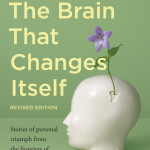“It is easier to fight for one’s principles than to live up to them.”
As relevant today as when written, this timely reprint of a classic in individual psychology shows the way to increased understanding of ourselves and our role in society.
What are we? What is our nature and our role? Where are we going and why? It was the psychodynamics behind these central questions that made Understanding Human Nature so important and useful. Originally published in England by Oneworld, and long regarded as a handbook of individual psychology, it introduces the main themes of Alfred Adler’s work, including the belief that we are decision-making beings responsible for our own behavior–and capable of changing it.
Adler’s central aim was to help people live effectively and with a feeling of belonging to the community, and, consequently, Understanding Human Nature‘s focus is the person in the world, shaping and being shaped by relationships with others. Exploring such themes as the child and society, one’s world view, aspects of unreality, character traits, expressions of character, and feelings and emotions, Adler demonstrates his principle’s practical application to the conduct of everyday relationships.
Adler foresaw that for our survival, we must run the world as a caring, interdependent whole, and his valuable and pertinent insights can help us transform ourselves and life on earth. [From: Books.google.com]
“Follow your heart but take your brain with you.”
Originally published in 1927 this book attempts to acquaint the general public with the fundamentals of Individual Psychology. At the same time it’s a demonstration of the practical application of these principles to the conduct of everyday relationships & the organization of personal life. Based upon a year’s lectures to audiences at the People’s Institute in Vienna, the book pointed out how the mistaken behavior of individuals affects social & communal harmony; to teach individuals to recognize their mistakes; & finally, to show them how they may effect a harmonious adjustment to communal life. Adler felt that mistakes in business or in science were costly & deplorable, but mistakes in the conduct of life are often dangerous to life itself. This book is dedicated by the author in his preface to the task of illuminating progress toward a better understanding of human nature. [From: Goodreads.com]
“Trust only movement. Life happens at the level of events, not of words. Trust movement.”
Long-regarded as the handbook of Individual Psychology, Understanding Human Nature provides an engaging introduction to Adler’s key concepts including: inferiority and superiority complexes; life style; memories and dreams; love, marriage and children; and sexuality and sexual problems. Adler’s holistic approach to the study of personality saw him challenge the dominance of Freud’s thinking (his friend and colleague) and develop a truly innovative, and still highly relevant, method of psychoanalysis. A straightforward, clearly-written book, it shows the seminal thinking of a great mind and provides a basis to understand both Adler’s unique theories and the development of twentieth-century psychology, in which his work has played such an important part. [From: Amazon.com]
“A lie would have no sense unless the truth were felt as dangerous.”
About The Author:
Alfred Adler was an early associate of Sigmund Freud in Vienna but his revolutionary observations triggered a life of research dedicated to understanding people that he called Individual Psychology. Adler’s comprehensive theory of human behavior has resulted in models of practice that have had broad impact on the fields of education, social sciences, family life, psychology and psychotherapy. He pioneered ideas and techniques that have become the basis for most contemporary work including Cognitive Behavior Therapy, Reality Therapy, Solution-Focused Therapy, Rational Emotive Behavior Therapy, Existential Therapy, Holistic Psychology and Family Therapy to name a few. Theorists as diverse as Karen Horney, Erich Fromm, Viktor Frankl, Abraham Maslow, Albert Ellis, and Aaron T. Beck credit Adler’s work as an important basis for their own contributions. Adler was one of the earliest theorists to utilize a short-term, active, focused and solution-oriented approach to psychotherapy. Adler’s work is fundamental to the professions and practices of school psychology, school counseling, the community mental health movement and parent education. As a dynamic and vital view of human development, Individual Psychology continues to grow and thrive in a changing world.
“The chief danger in life is that you may take too many precautions.”
Thyra Boldes once wrote of Adler that he was real, whether he was joking or serious, whether in private discussion or lectures, his real personality always seemed to say, Life is holy. Have reverence for life. Everything, which happens, is important.
In his youth, Adler was a sickly child, which caused him embarrassment and pain. These early experiences with illnesses and accidents probably account for his theory of organ inferiority and were the foundation for his theories on inferiority feelings. According to Adler, each individual has a weak area in his or her body – organ inferiority, which tends to be the area where illness occurs, such as the stomach, head, heart, back, lungs, etc. Adler said that to some degree every emotion finds expression in the body. From his understanding of organ inferiority, Adler began to see each individual as having a feeling of inferiority. Adler wrote, to be a human being means to feel oneself inferior. The child comes into the world as a helpless little creature surrounded by powerful adults. A child is motivated by feelings of inferiority to strive for greater things. Those feelings of inferiority activate a person to strive upward so that normal feelings of inferiority impel the human being to solve his or her problems successfully, whereas the inferiority complex impedes or prevents one from doing so.
The healthy individual will strive to overcome his or her inferiority through involvement with society. One is concerned about the welfare of others as well as oneself and develops good feelings of self-worth and self-assurance. On the other hand, some are more concerned with selfishness than with social interest. They may express this selfishness in a need to dominate, to refuse to cooperate, wanting to take and not to give. From these unhealthy responses, the person develops an inferiority complex or a superiority complex. A superiority complex is a cover up for an inferiority complex. They are different sides of the same coin. The person with the superiority complex has hidden doubts about his or her abilities.
Adler developed a theory of personality based upon:
- Inferiority feelings and inferiority complex,
- Striving for superiority
- Style of life
- Social interest
- Family constellation
- Fictional finalism
- The creative self
- Masculine protest
- The interpretation of dreams
- Theory of psychotherapy.
[From: Alfredadler.org]
“To be a human being means to possess a feeling of inferiority which constantly presses towards its own conquest. The greater the feeling of inferiority that has been experienced, the more powerful is the urge for conquest and the more violent the emotional agitation.”
If you like this story, CLICK HERE to join the tribe of success-minded people just like you. You will love our weekly quick summaries of top stories, talks, books, movies, music and more with handy downloadable guides, cheat sheets, cliffs notes and quote books.


















